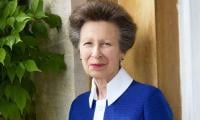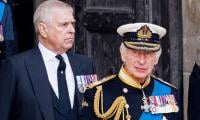Exiled Baloch leaders oppose Marri’s freedom charter
LONDON: A year after Baloch leader Hyrbyair Marri presented the ‘Freedom Charter’ for consultations
By Murtaza Ali Shah
December 17, 2012
LONDON: A year after Baloch leader Hyrbyair Marri presented the ‘Freedom Charter’ for consultations to unite the Baloch nationalists on a single platform, key Baloch stakeholders have either opposed the document or expressed reservations about it.
Exiled leaders Mehran Baloch, Hyrbyar’s younger brother and Balochistan’s representative in the United Nations, Brahumdagh Bugti, self-exiled leader of the Balochistan Republican Party, Khan of Kalat Mir Suleman Dawood and Balochistan National Party (BNP) leader Akhtar Mengal have publicly distanced themselves from the ‘Freedom Charter’ and have alleged that the points in the charter are unrealistic and don’t correspond to the ground realities of the Baloch struggle.
Hyrbyar Marri, however, is determined that he will publicly issue the charter in the new year and believes that the detractors of the charter actually want to preserve the status quo, Sardari system and their opposition to the ‘Charter’ is motivated by their desire to safeguards their vested-interests.
When asked by The News about the opposition to the ‘Charter’, Hyrbyar said: “The ‘Freedom Charter’ is a radical document, it’s for the people of Balochistan, and it’s a roadmap for an independent Balochistan.
To gather consensus on the charter, Hyrbyar travelled to different parts of the Europe and held meetings with Baloch leaders but none of them have extended support to Hyrbyar, preferring to carry on with solo flights.
The first ones to cast doubt on the charter are Mehran Baloch and Brahumdagh Bugti. They have publicly stated that they cannot endorse the ‘Charter’ because Nawab Khair Buksh Marri, the revered Baloch leader still alive, was not consulted about the ‘charter’ formation and its methodology.
They have said that after the killing of Nawab Akbar Bugti, the void can only be filled by a senior figure such as Nawab Marri who is the most veteran leader and without his advice and patronage the ‘Charter’ will not succeed in achieving its goals.
The fissures over the ‘Charter’ are linked to another wider issue facing the Baloch nationalist movement which has faced serious internal crisis in recent days when Baloch statesman Nawab Khair Bakhsh Marri was targeted. Articles were written on Baloch websites that called Nawab Marri names and questioned his judgement. It was alleged that Nawab Marri was supporting his youngest son Mehran and his politics over his other sons and this was going against the “principle, belief, ideology” of the nationalist movement.
It is believed that the article was written after Sardar Akhtar Mengal’s recent visit to Pakistan. The article questioned why Nawab Marri had given “Mehran Baloch and Brahumdagh Bugti the go-ahead to form an alliance with Sardar Akhtar Mengal's older brother Javed Mengal”, suggesting that the close familial relations between the three are a plot.
It was alleged that Nawab Marri was giving “precedence to blood ties on national imperatives” and was “uprooting” the very plant that he planted and for which a whole generation gave its blood to help it grow to become a tree. It was further alleged that Nawab Marri was encouraging Brahumdagh Bugti to call for a referendum because "Brahumdagh has said that he gets advice from Nawab Marri on every matter”.
Mehran Baloch confirmed to The News that some “sponsored so-called nationalists were running a vicious campaign to tarnish the image of Baloch heroes who have sacrificed their comfort for the better future of a nation”. Mehran, however, refused to comment why he was opposing the ‘Freedom Charter’ at a crucial time in the Baloch nationalist struggle when there should be unity of action and thoughts.
Hyrbyair Marri said that it didn’t matter to him whether traditional Baloch leaders from his own tribe or the affiliated tribes supported the ‘Charter’. “What matters is the support of common people who are most affected by the human rights violations. The Freedom Charter has received enormous support from Baloch Elders' Council from 22 provinces of Afghanistan. The Council supported the aims of the Charter word-by-word, by consensus. They appealed to the Balochs of the world to be united and that’s what the Charter is about. If Sardars are against it then it’s their problem and show that they live in a cuckoo land,” he added.
Exiled leaders Mehran Baloch, Hyrbyar’s younger brother and Balochistan’s representative in the United Nations, Brahumdagh Bugti, self-exiled leader of the Balochistan Republican Party, Khan of Kalat Mir Suleman Dawood and Balochistan National Party (BNP) leader Akhtar Mengal have publicly distanced themselves from the ‘Freedom Charter’ and have alleged that the points in the charter are unrealistic and don’t correspond to the ground realities of the Baloch struggle.
Hyrbyar Marri, however, is determined that he will publicly issue the charter in the new year and believes that the detractors of the charter actually want to preserve the status quo, Sardari system and their opposition to the ‘Charter’ is motivated by their desire to safeguards their vested-interests.
When asked by The News about the opposition to the ‘Charter’, Hyrbyar said: “The ‘Freedom Charter’ is a radical document, it’s for the people of Balochistan, and it’s a roadmap for an independent Balochistan.
To gather consensus on the charter, Hyrbyar travelled to different parts of the Europe and held meetings with Baloch leaders but none of them have extended support to Hyrbyar, preferring to carry on with solo flights.
The first ones to cast doubt on the charter are Mehran Baloch and Brahumdagh Bugti. They have publicly stated that they cannot endorse the ‘Charter’ because Nawab Khair Buksh Marri, the revered Baloch leader still alive, was not consulted about the ‘charter’ formation and its methodology.
They have said that after the killing of Nawab Akbar Bugti, the void can only be filled by a senior figure such as Nawab Marri who is the most veteran leader and without his advice and patronage the ‘Charter’ will not succeed in achieving its goals.
The fissures over the ‘Charter’ are linked to another wider issue facing the Baloch nationalist movement which has faced serious internal crisis in recent days when Baloch statesman Nawab Khair Bakhsh Marri was targeted. Articles were written on Baloch websites that called Nawab Marri names and questioned his judgement. It was alleged that Nawab Marri was supporting his youngest son Mehran and his politics over his other sons and this was going against the “principle, belief, ideology” of the nationalist movement.
It is believed that the article was written after Sardar Akhtar Mengal’s recent visit to Pakistan. The article questioned why Nawab Marri had given “Mehran Baloch and Brahumdagh Bugti the go-ahead to form an alliance with Sardar Akhtar Mengal's older brother Javed Mengal”, suggesting that the close familial relations between the three are a plot.
It was alleged that Nawab Marri was giving “precedence to blood ties on national imperatives” and was “uprooting” the very plant that he planted and for which a whole generation gave its blood to help it grow to become a tree. It was further alleged that Nawab Marri was encouraging Brahumdagh Bugti to call for a referendum because "Brahumdagh has said that he gets advice from Nawab Marri on every matter”.
Mehran Baloch confirmed to The News that some “sponsored so-called nationalists were running a vicious campaign to tarnish the image of Baloch heroes who have sacrificed their comfort for the better future of a nation”. Mehran, however, refused to comment why he was opposing the ‘Freedom Charter’ at a crucial time in the Baloch nationalist struggle when there should be unity of action and thoughts.
Hyrbyair Marri said that it didn’t matter to him whether traditional Baloch leaders from his own tribe or the affiliated tribes supported the ‘Charter’. “What matters is the support of common people who are most affected by the human rights violations. The Freedom Charter has received enormous support from Baloch Elders' Council from 22 provinces of Afghanistan. The Council supported the aims of the Charter word-by-word, by consensus. They appealed to the Balochs of the world to be united and that’s what the Charter is about. If Sardars are against it then it’s their problem and show that they live in a cuckoo land,” he added.
-
 Yerin Ha On Carving Her Own Path As 'Bridgerton' Season 4's Lead
Yerin Ha On Carving Her Own Path As 'Bridgerton' Season 4's Lead -
 Michael J. Fox Receives Praise From 'Shrinking' Season 3 Co Stars
Michael J. Fox Receives Praise From 'Shrinking' Season 3 Co Stars -
 Jacob Elordi Reveals Getting Burned During 'Wuthering Heights' Filming
Jacob Elordi Reveals Getting Burned During 'Wuthering Heights' Filming -
 Prince Harry Loses The Last Of Prince William’s Sympathy? ‘He Left London Entirely’
Prince Harry Loses The Last Of Prince William’s Sympathy? ‘He Left London Entirely’ -
 Macaulay Culkin Pens Emotional Tribute To 'Home Alone' Mum Catherine O'Hara
Macaulay Culkin Pens Emotional Tribute To 'Home Alone' Mum Catherine O'Hara -
 Rob Cesternino Shares Learning Essential Skills During Time On 'The Traitors'
Rob Cesternino Shares Learning Essential Skills During Time On 'The Traitors' -
 South Carolina Teen Arrested After Altercation With Mother Outside High School
South Carolina Teen Arrested After Altercation With Mother Outside High School -
 Estranged Husband Kills Wife In Florida Murder-suicide Hours After Leaving Jail
Estranged Husband Kills Wife In Florida Murder-suicide Hours After Leaving Jail -
 Kylie Kelce Plays Coy Over Travis, Taylor Swift Wedding Plans: 'Not Gonna Lie'
Kylie Kelce Plays Coy Over Travis, Taylor Swift Wedding Plans: 'Not Gonna Lie' -
 US Opens Civil Rights Probe Into Alex Pretti Shooting: Report
US Opens Civil Rights Probe Into Alex Pretti Shooting: Report -
 Prince William, Kate Middleton Decide Next Step For Prince George
Prince William, Kate Middleton Decide Next Step For Prince George -
 Catherine O’Hara: Home Alone Actress Dies After 'brief Illness'
Catherine O’Hara: Home Alone Actress Dies After 'brief Illness' -
 Princess Anne Refuses An Offer Made At Palace
Princess Anne Refuses An Offer Made At Palace -
 'The Rookie's' Mekia Cox Reveals Her Daughter's Debut In Season 8
'The Rookie's' Mekia Cox Reveals Her Daughter's Debut In Season 8 -
 King Charles Faces Challenge Over 'disgraced' Andrew's New Home
King Charles Faces Challenge Over 'disgraced' Andrew's New Home -
 Bianca Censori 'tried' To Walk Away 'a Number Of Times' From Kanye West Marriage: Source
Bianca Censori 'tried' To Walk Away 'a Number Of Times' From Kanye West Marriage: Source



